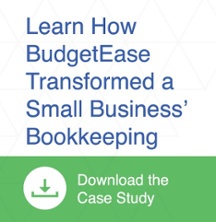
As a small business owner, handling bookkeeping can be overwhelming. While hiring a virtual bookkeeper is ideal, sometimes we find potential clients are not financially ready to outsource bookkeeping. Here are the steps you can take to manage your finances effectively until you’re ready for professional assistance.
How to Manage Bookkeeping Without Hiring
- Regularly Update Records: Set aside time weekly or monthly to input transactions. Consistent updates prevent backlogs.
- Separate Business and Personal Finances: Maintain separate bank accounts and credit cards for business transactions. This is a must. You will thank yourself and your accountant will thank you.
- Hire a Payroll Company: Paying employees, withholding, and paying payroll taxes is complicated. If you make a mistake, it will take hours to fix it. Have a reputable payroll company like Gusto, ADP or a local company manage your payroll for you. Accounts wear many hats. Stick with a Payroll Company to process your payroll. They tend to be cost-effective and provide easily accessible reports that you will need.
- Use Accounting Software: Excel works great to start, say your revenue is under $100,000 a year. As you grow you will graduate to financial software. QuickBooks is user-friendly and streamlines basic bookkeeping tasks. Track income, expenses, and invoices efficiently. Stay away from programs that don’t let you upgrade to higher level services like QuickBooks Self-Employed.
- Educate Yourself: Learn basic bookkeeping principles. Online courses or tutorials can boost your skills. QuickBooks has an excellent and often free training program on learning the basics of bookkeeping. Ask a friend or relative for help.
As your business grows, hiring a bookkeeper will become essential. Until then, stay organized, use tools like QuickBooks, and focus on your core business goals. You may find that you are soon ready to outsource bookkeeping.
Signs You Need a Bookkeeper
- Outdated Records: If you’re drowning in old receipts and paperwork, it’s time to seek help. A bookkeeper can get your books up to date and provide clarity on your financial situation.
- You have loans, inventory or other challenging assets: Managing loans or inventory is more challenging without financial software and someone who knows what they are doing.
- 1099s have you confused: Not providing 1099s to your contractors has you anxious? Contractors who make $600 or more a year need to receive an IRS form 1099 by the end of January each year. It is good to practice having all contractors fill out a W-9 each year, too.
- Lack of Bookkeeping Skills: Not everyone is a bookkeeping expert. Hiring a professional reduces the risk of errors and ensures accurate financial records.
- Tax Season Rush: If you scramble to prepare your books before tax season, consider hiring a bookkeeper. Organized records make tax filing smoother, and less expensive.
- Cash Flow Uncertainty: Managing cash flow is crucial. A bookkeeper helps track accounts payable and receivable, giving you a clearer financial picture.
- Accountant vs. Bookkeeper: Remember, accountants handle more complex tasks. You can opt for a bookkeeper to save costs and stay up to date on your routine financial management.
Some is not better than none in the case of your bookkeeping. So often we see some bookkeeping that is so bad that starting from scratch would be better. Don’t waste your time doing the bookkeeping if it is not in your skill set.
Here at BudgetEase, we believe in cost-effective solutions. We have some clients who simply need a clean-up, some who do a quarterly check-in, and others where we do it all. Let’s stay in touch --we are ready to help you out when you need us. Better Together!





